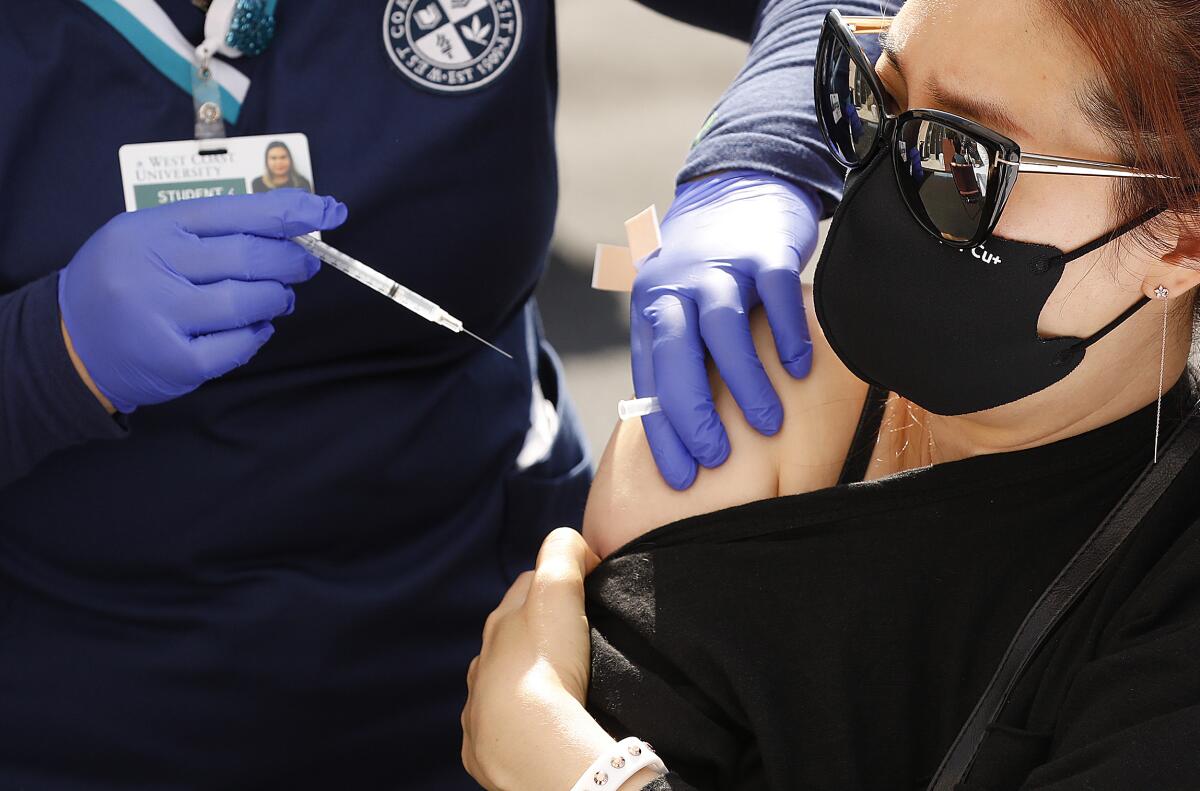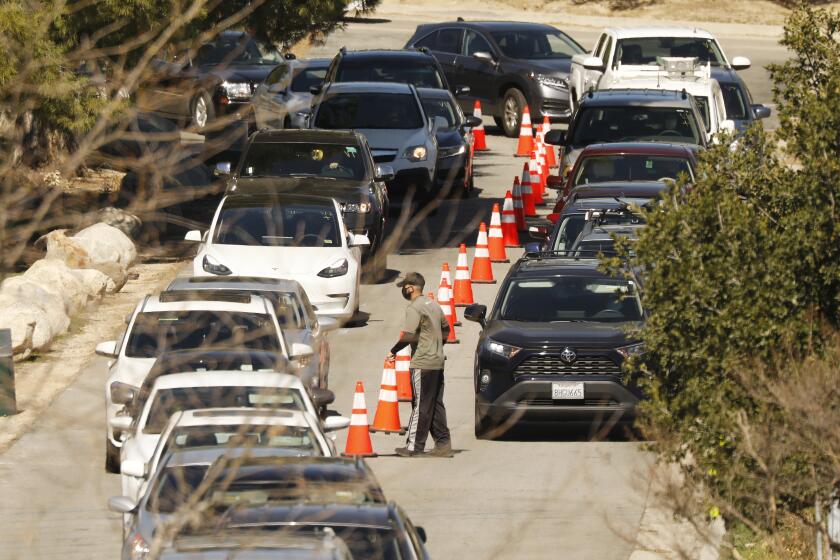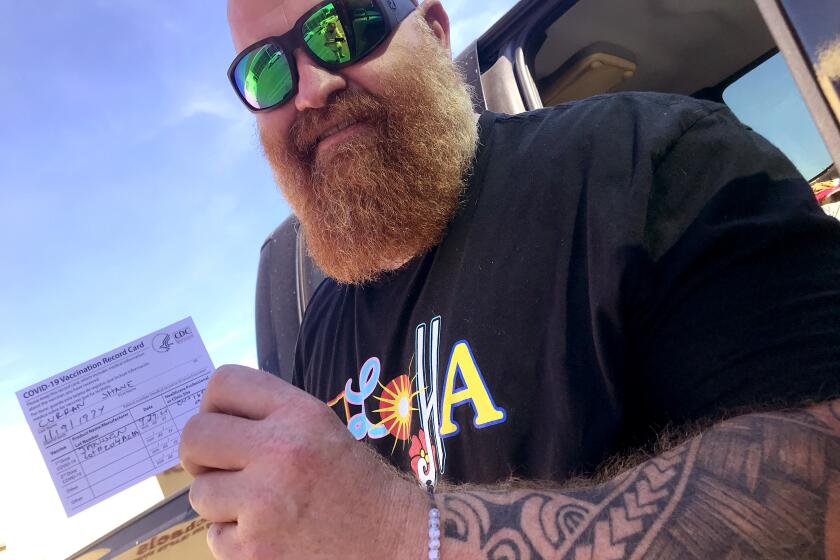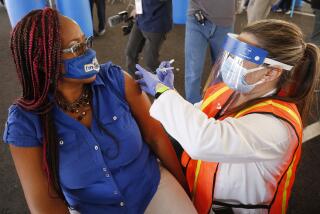COVID-19 vaccine is now available in L.A. County without appointments. What you need to know

- Share via
Many sites in the city and county of Los Angeles are now offering opportunities for residents to get the COVID-19 vaccine without having to make an appointment.
Officials say the additional walk-up availability is aimed at lowering a potential barrier to vaccine access — as not everyone has the time or technological resources to navigate online booking platforms.
“Most sites are actually not requiring appointments, and most sites right now have availability in terms of both slots when you can come in and get vaccinated, and also plenty of supply,” L.A. County Public Health Director Barbara Ferrer said Monday.
Providers throughout Los Angeles County administered 144,000 fewer COVID-19 vaccine doses last week compared with the week prior — the clearest evidence yet that the demand for doses has dropped significantly.
The city
Appointment-free vaccinations will be available at all mobile sites operated by the city of Los Angeles, as well as the fixed locations at Lincoln Park, San Fernando Park, Pierce College, USC, Los Angeles Southwest College, Century City and Cal State L.A.
Additionally, the vaccine sites at Cal State L.A., Hansen Dam, San Fernando Park, Lincoln Park, Pierce College, Crenshaw Christian Center, L.A. Southwest College, USC, Century City and Dodger Stadium will add another day to their schedules this week and operate Monday through Saturday.
The city’s eight mobile clinics will remain on their typical Tuesday-through-Saturday schedule. One clinic, at the South Park Recreation Center, will be open from 9 a.m. to 9 p.m. — providing a nighttime option for those whose schedules would otherwise make it difficult to get vaccinated.
In all, L.A. officials estimate they will have the capacity to administer about 260,000 doses this week, the most ever.
For more information on the city’s vaccine locations, visit the city’s COVID-19: Keeping Los Angeles Safe webpage. All vaccines are free, regardless of immigration or health insurance status.
Amid the push for herd immunity, 5% of adults may be avoiding vaccines due to an intense fear of needles. It is common, and it can be overcome.
The county
L.A. County is also providing walk-up vaccinations through Sunday at its sites at the county Office of Education, the Forum, Cal State Northridge, Pomona Fairplex, College of the Canyons and Palmdale Oasis Recreation Center.
Appointment-free shots are also available through Saturday at the Eugene A. Obregon Park and Balboa Sports Complex vaccination sites.
For more information, visit the county’s public health COVID-19 vaccine webpage.
Officials said walk-in slots will be offered while supplies last. Lately, though, availability has been more than a match for the public’s appetite.
Providers throughout Los Angeles County administered 144,000 fewer COVID-19 vaccine doses last week compared with the week prior — a significant drop that mirrors the dwindling demand being seen in many other parts of the country.
During the week of April 17-23, there were 611,592 doses administered countywide — an average of roughly 87,000 a day, according to figures Ferrer presented Monday. From April 24-30, only 467,134 doses were doled out, an average of about 67,000 per day.
About 54% of L.A. County residents 16 and older had received at least one vaccine dose as of April 28, public health data show. But only about 36% of Angelenos in that age range are fully vaccinated — meaning they’ve received either the single-shot Johnson & Johnson vaccine or both required doses of Pfizer-BioNTech or Moderna.
Roughly half of all Californians have received at least one shot to date, and nearly 32% are fully vaccinated, according to figures from the Centers for Disease Control and Prevention.
More to Read
Sign up for Essential California
The most important California stories and recommendations in your inbox every morning.
You may occasionally receive promotional content from the Los Angeles Times.













